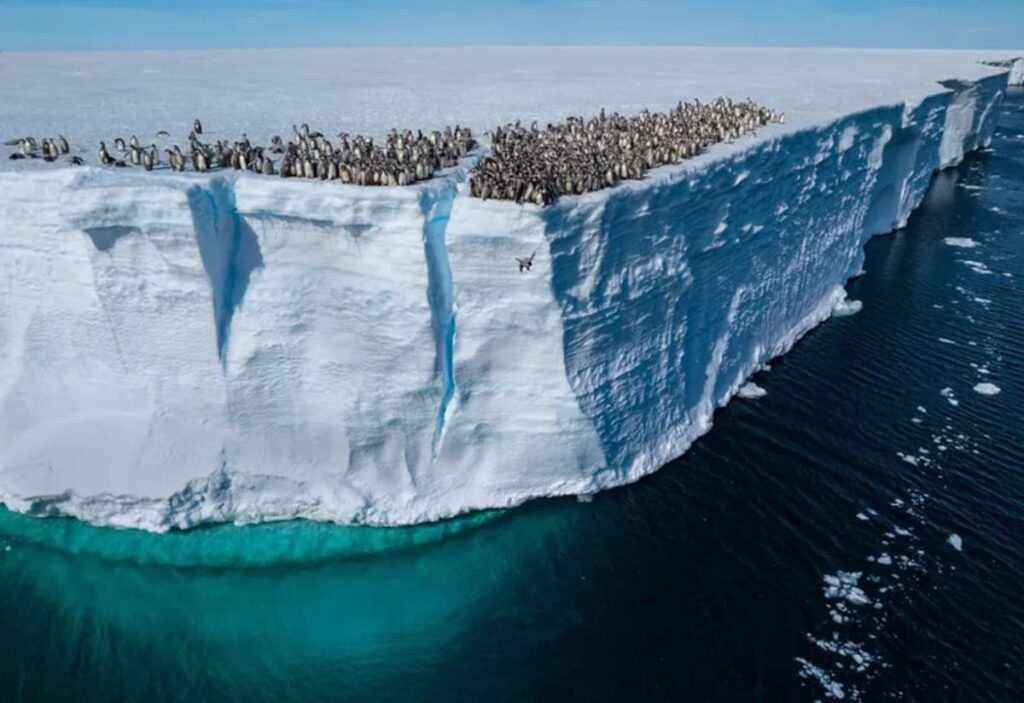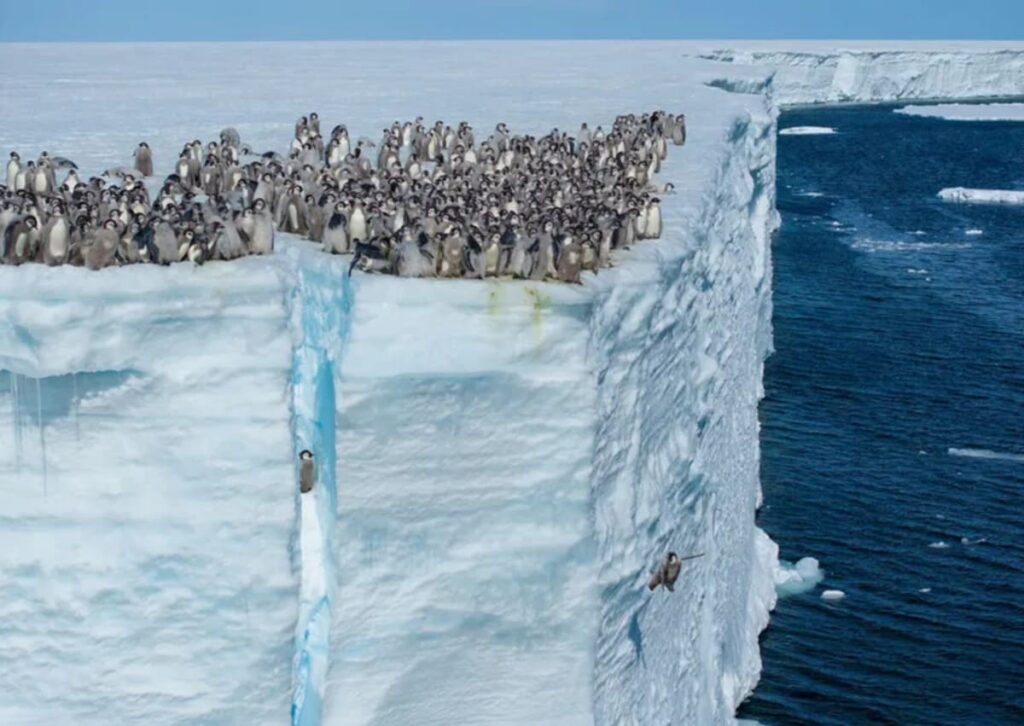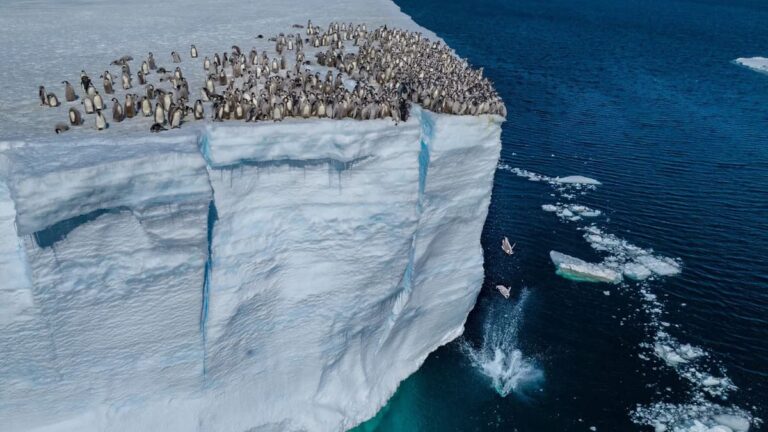Recently captured drone footage unveils a scene straight from the remote, icy expanses of Antarctica that seems almost too dramatic to be real: young emperor penguins taking a bold leap off a towering 49-foot cliff into the chilly waters below. This rare phenomenon, showcased in the National Geographic documentary series Secrets of the Penguins, raises a curious question: why do these juvenile penguins take such a risky plunge?
A Gathering at the Edge
Picture this: hundreds of emperor penguin chicks, only a few months old, congregating like a group of daring teenagers atop a glacier ledge. They peer curiously over the edge, seemingly questioning if they will survive the jump into the frosty Antarctic seas. It takes just one brave or perhaps overly enthusiastic penguin to make the leap, and soon after, others follow.
Michelle LaRue, a conservation biologist from the University of Canterbury in Christchurch, New Zealand, expressed her amazement at the footage: “I can’t believe they managed to film that,” she remarked, noting the extraordinary nature of the event captured during the crew’s third year of documenting emperor penguins from hatching to their first journey to the sea.
The Drive Behind the Dive

The behavior may seem perplexing, but the motivation behind these high dives is primarily survival. With their parents already gone to the sea, the chicks are left to fend for themselves, needing to feed on fish, krill, and squid. The cliff jump, though perilous, is their fastest route to the ocean and its abundant food sources.
Gerald Kooyman, a physiologist who has studied emperor penguins for over five decades, recalls only one other instance of such behavior, suggesting how rare and unprecedented this act truly is. He shared in his recent book, Journeys with Emperors, how a similar incident occurred over thirty years ago when a group of penguin chicks used a drifting snow ramp to reach an iceberg.
Climate Change: A Push Towards New Behaviors

This unusual behavior might be becoming more frequent as climate change reshapes their environment. The icy realms of the Antarctic are undergoing significant transformations, with sea ice melting at increasingly earlier times each year. As traditional breeding grounds on floating sea ice become unstable, emperor penguins are adapting by nesting on more secure ice platforms, which unfortunately are often bordered by these steep cliffs.
Peter Fretwell, a scientist from the British Antarctic Survey, emphasizes the dire implications of the diminishing sea ice. “The rapid decline of the ice since 2016 could have catastrophic consequences for the species’ survival by the end of this century,” he explained, indicating a grim forecast for the emperor penguins if current climate trends continue.
Resilient Birds Facing Rapid Changes

Despite the alarming changes, LaRue remains hopeful about the emperor penguins’ adaptability. Their recent cliff-diving escapades highlight their incredible resilience and capability to adjust to new challenges. “They’ve been around for millions of years, witnessing numerous changes in their environment,” LaRue noted. The real question, she adds, is how quickly they can adapt to the current, fast-paced changes.
As these majestic birds stand on the brink—literally and figuratively—their leaps from high cliffs not only display their immediate survival instincts but also underscore the broader environmental challenges they face. As we continue to observe these fascinating creatures, their actions serve as a barometer for the health of their icy home and remind us of the ongoing impacts of global climate change.






